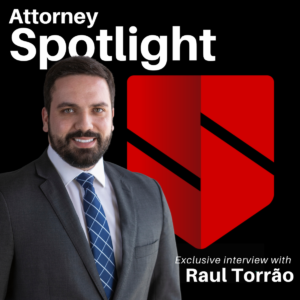Hong Kong liquidators obtain pre-recognition discovery relief in Miami
A Hong Kong headquartered, British Virgin Islands-incorporated company’s provisional liquidators have obtained emergency relief in the US to conduct discovery on a property it used to own in Miami, which they allege has been wrongfully transferred at least three times in the last three years.
On 3 February, Chief Bankruptcy Judge Laurel M Isicoff in the US Bankruptcy Court for the Southern District of Florida, granted an emergency motion allowing the liquidators of Dingway Investment Limited, Teneo’s Russel Crumpler in the BVI and KPMG’s Fergal Power in Hong Kong, to conduct proposed discovery under federal and local bankruptcy rules in the US, before they are formally recognised under Chapter 15.
The pair submitted a recognition petition before the Miami court on 27 January, just three days after a Hong Kong court opened a winding-up petition against Dingway at the request of its majority shareholder, Hong Kong-based China City Construction International (China City).
China City itself has also been in a creditor’s voluntary liquidation in Hong Kong since January 2019, and is currently being managed by KPMG’s global head of restructuring services Patrick Cowley and partner Lui Yee Man as liquidators.
Cowley, Lui and KPMG director Christopher Ball are also currently sitting as three of Dingway’s five directors.
In a declaration supporting Dingway’s Chapter 15 application, Crumpler explains that Dingway was incorporated in 2014 to indirectly purchase a “substantial” vacant land site in Miami’s Brickell Financial District through three intermediate Delaware companies.
At the time of the purchase, an entity called China City Construction & Development Co (CCCDHK) funded the US$86.7 million purchase price for the property, in return for an equivalent reduction to a US$204 million debt it owned to China City. The latter then passed the funds down the structure to the titleholder of the Miami property by way of a series of shareholder loans.
In October 2015, an entity called Champ Prestige took a 45% interest in Dingway for just over US$40 million, leaving China City with the remaining 55%.
Three years later, CCDHK brought an unsuccessful claim against China City in the Hong Kong High Court, arguing that China City had always held its shares in Dingway and the US$40 million that Champ Prestige had paid for its interest, on trust for CCCDHK.
It sought an order for China City to transfer the legal ownership of its shares and the money to CCDHK, but the court declined to grant the relief and CCCDHK discontinued the proceedings in December 2019.
Crumpler notes in his declaration that investigations by China City’s liquidators, Cowley and Lui, suggest CCCDHK and China City are ultimately controlled by the same people associated with a mainland Chinese company called China City Development Academy (CCDA).
CCDA indirectly held an interest in China City until April 2016 and obtained an indirect interest in CCCDHK in July of the same year. Despite one ownership interest ceasing before the other commenced, the same people seemed to exert a measure of control over both entities at all material times, China City’s liquidators claimed.
In particular, City City’s liquidators told Crumpler that an individual named Zeng Yuqi seemed to be a common director of China City and CCCDHK between February and September 2018, while another director of CCCDHK, Sze Wai Suen, was an authorised signatory for certain China City accounts as late as September 2016, among other things.
Crumpler claims that Zeng, acting as a “rogue director” and without authorisation from Dingway’s board or shareholders, signed an agreement in October 2019 to transfer its interests in the Delaware ownership structure and the Miami property to CCCDHK, for no consideration. He says Sze signed the agreement on CCCDHK’s behalf.
The provisional liquidator claims CCCDHK then sold the Delaware structure and Miami property to a Californian entity in November 2019 for US$70 million, with Sze as signatory again.
Crumpler says Champ Prestige, as Dingway’s minority shareholder, was initially prepared to cooperate with China City’s liquidators to try to retrieve its interest in the Miami property. But in March 2020, Cowley and Lui learned that Champ Prestige itself had been sold to CCCDHK for US$44 million.
Finally, on 30 December last year, Crumpler notes Cowley and Lui found out through an online news article that the Miami property had been sold again – this time for US$103 million to an entity belonging to Miami real estate investment firm Mast Capital and Boston private equity group Rockpoint.
The news article in the South Florida Business Journal reported that the property had been “seized” following “a legal battle with the previous owner”.
Submitted at the same time as their Chapter 15 application, Crumpler and Power asked the Miami district court for emergency provisional relief so they could investigate the latest transaction with Mast Capital and Rockpoint.
Specifically, they asked permission to issue and serve pre-recognition subpoenas for the production of documents on the two new acquirors and three Delaware entities they used to effectuate the sales, as well as two other Mast Capital companies that may have been involved in the sale.
Crumpler and Power argued that the proposed discovery was limited and targeted to obtaining information regarding the location of the closing proceeds for the sale.
They said they needed relief on an emergency basis to preserve the status quo of Dingway’s estate and prevent “further dissipation” of the Miami property’s proceeds of sale.
Granting the provisional relief, Judge Isicoff noted it was “narrowly tailored in scope and duration” and reflected that there were no parties in opposition.
The judge also said the “threatened injury” to Dingway’s estate outweighed “whatever damage the requested relief may cause an opposing party”.
Champ Prestige proceedings
Crumpler explains in his declaration that Champ Prestige originally brought an action in a Miami-Dade County court against China City and the Delaware entity that was the Miami property’s direct owner in June 2019, claiming the majority shareholder had breached its obligations under the sale and purchase agreement through which Champ Prestige had acquired its 45% interest in Dingway.
Among other things, Champ Prestige sought to impose and foreclose on an equitable lien on the property, and in December 2019 it secured a temporary injunction from the Miami-Dade court enjoining the land’s disposition. The injunction was expanded in February 2020 to also prevent any indirect dispositions or the sale of any interests in the three Delaware holding companies.
But after CCCDHK acquired Champ Prestige it voluntarily dismissed the Miami-Dade action and removed the lis pendens over the property.
Crumpler has also recorded that Champ Prestige filed a winding-up petition against Dingway and China City in Hong Kong back in February 2018, but no steps had been taken in the petition since March 2020, when Mr Justice Harris dismissed an application from China City to strike it out on jurisdictional grounds.
Crumpler explains in his declaration that Cowley and Lui, as China City’s liquidators, had wanted to try to recover its interest in Dingway and its ultimate 55% interest in the Miami property, but had been unable to take action due to lack of funding, and because of CCCDHK’s action in Hong Kong and the Miami-Dade proceedings.
When the Hong Kong court placed Dingway in liquidation, it issued a proprietary injunction against CCCDHK in respect of the US$70 million for the November 2019 sale of the property. It also issued a mareva injunction restraining CCCDHK, Zeng and Sze from dealing with assets of up to US$103 million.
The court was due to hold an inter partes hearing in Hong Kong to address Crumpler and Power’s continuing appointment as joint provisional liquidators and the injunctions on 4 February. GRR was unable to ascertain the outcome of that hearing by press time.
After they have obtained evidence in aid of their asset recovery efforts, Crumpler and Power intend to file actions and proprietary claims in the US, including claims against third parties in the US that may have damaged Dingway or owe it money.
The provisional liquidators have retained Sequor Law partners Fernando Menendez and Gregory Grossman as US counsel.
The Chapter 15 bankruptcy court has scheduled a full recognition hearing on 23 February.
In the US Bankruptcy Court for the Southern District of Florida
- Chief Bankruptcy Judge Laurel M Isicoff
Counsel to joint provisional liquidators of Dingway Investment Limited
Partners Fernando Menendez and Gregory Grossman in Miami
In the Hong Kong Court of First Instance
In the matter of Dingway Investment Limited
Joint provisional liquidators of Dingway
Senior managing director Russel Crumpler in the British Virgin Islands
Partner Fergal Power in Hong Kong
Counsel to petitioner China City (in creditors’ voluntary liquidation) and then to joint provisional liquidators
Senior associate Veronica Chan in Hong Kong





Sequor Law es una firma internacional de abogados que representa instituciones financieras, gobiernos soberanos, empresas estatales, empresas públicas y privadas, profesionales de insolvencia y clientes individuales en las áreas de recuperación de activos, fraude financiero, insolvencia y litigios de servicios financieros.